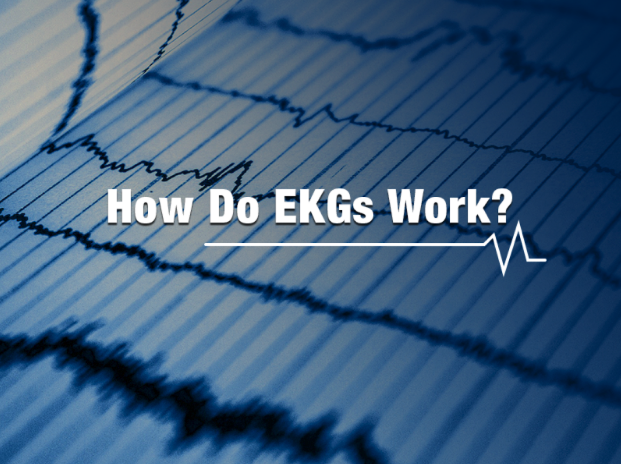
The heart of a healthy human being has a specific electrocardiogram pattern. Monitoring the rate of an individual’s heartbeat helps doctors evaluate whether the heart is working as it should. Doctors use an electrocardiogram (EKG or ECG) to monitor the electrical activity of the heart. This test can inform a doctor of the size of an individual’s heart chambers, rate of heartbeat, and the functioning of heart muscles by detecting any unusual pattern in the heart’s electrical function. EKGs are painless tests often conducted in the doctor’s office or hospital and yield immediate results. Here are the basics of EKGs.
How an EKG Functions
An electrical impulse is generated and sent from the sinoatrial node made up of pacemaker cells, which trigger each heartbeat. The location of the pacemaker is in the right upper chamber of the heart, and its primary function is to keep the pulse steady. An EKG traces the path and strength of electrical signals sent by the node to the muscles of the heart and records them. For an EKG to work, electrodes are placed on specific locations of the body to pick up the electrical activity of the heart. The recording of the impulses is in the form of waves on a graph pattern that corresponds to the individual’s electrical phase of the heartbeat.
What to Expect During an EKG Test
Taking an electrocardiogram test does not require any special initial preparation. An individual undergoing an EKG is required to lie down on an examination table. The technician, doctor, or nurse then cleans the body parts where he or she plans to place the electrodes. This can include the chest, wrist, back, and ankles. Then, the technician keys data into the machine and asks the patient to lie still while the machine takes readings of the electrical waves generated by the heart. From the readings, the doctor can tell whether there is a problem in the heart that requires medical attention.
At Transcontinental Advanced Coatings, we design conductive coatings for medical electrodes usable during electrocardiograms. We are reliable and produce high-end products to meet all our customers’ business needs. Additionally, we engage with our customers to solve any problems they might experience in the market. To request more information, fill out our online inquiry form.